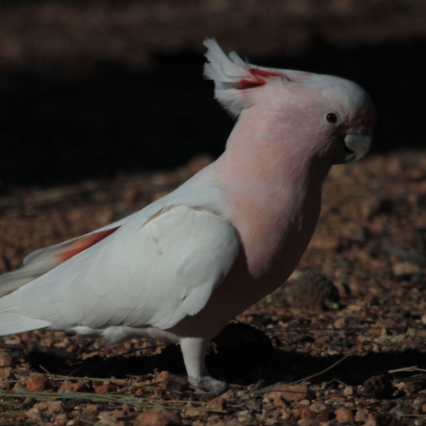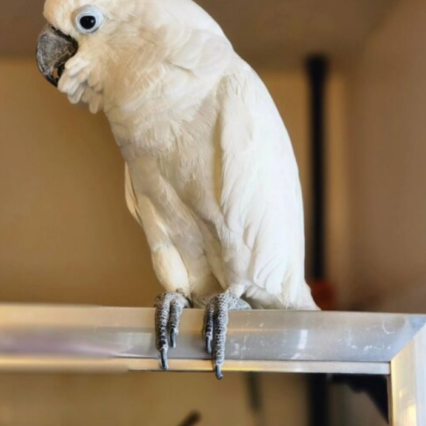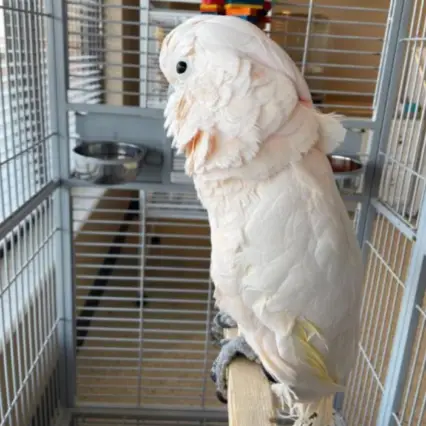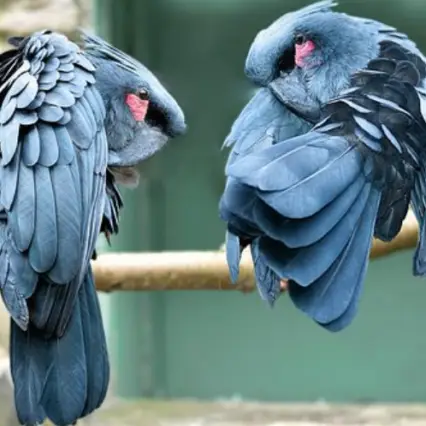rose breasted cockatoo for sale
by
Additional information
$1,000.00
Product Specification:
- Size: 14 inches
- Lifespan: up to 80 years
- Bird Species: Cockatoo
- Sounds: Vocal, Talkative, Mimics, Natural calls
- Interaction: Social, Affectionate, Fun, Energetic
- Comparable Breeds: Umbrella Cockatoo, Major Mitchell’s Cockatoo
rose breasted cockatoo for sale
| Rose Breasted Cockatoo | |
| Introduction | The Rose Breasted Cockatoo, also known as the Galah, is a stunning and intelligent bird native to Australia. Known for their vibrant pink and gray plumage and engaging personalities, these birds have become popular pets around the world. In this article, we’ll delve into every aspect of the Rose Breasted Cockatoo, from their natural habitat and physical characteristics to their care requirements and conservation status. |
| Natural Habitat | |
| Geographic Range | Rose Breasted Cockatoos are widespread across Australia, inhabiting almost all regions except the most arid deserts. They are particularly common in open country, including woodlands, grasslands, and farmlands. |
| Climate and Environment | These cockatoos thrive in various climates, from tropical to temperate zones. They prefer environments where they can find ample food and nesting opportunities, often near water sources. |
| Physical Characteristics | |
| Appearance | The Rose Breasted Cockatoo is easily recognizable by its bright pink chest and face, contrasted with a light gray back, wings, and tail. Their crest, which they can raise or lower, is also pink. |
| Size and Weight | These birds typically measure about 12 to 15 inches in length and weigh between 10 to 14 ounces. Their wingspan can reach up to 29 inches, making them strong and agile fliers. |
| Behavior and Temperament | |
| Social Behavior | Rose Breasted Cockatoos are highly social birds that often form large flocks. They are known for their playful and affectionate nature, both in the wild and in captivity. |
| Vocalizations | These birds are quite vocal, capable of a range of sounds from whistles and squawks to mimicking human speech. Their vocalizations are often used to communicate with flock members or express excitement. |
| Diet and Nutrition | |
| Wild Diet | In the wild, Rose Breasted Cockatoos feed on a variety of seeds, nuts, fruits, and vegetation. They are particularly fond of grass seeds and can often be seen foraging on the ground. |
| Captive Diet | In captivity, their diet should be balanced with high-quality pellets, fresh fruits, vegetables, and occasional seeds. It’s important to avoid foods high in fat and sugar to maintain their health. |
| Lifespan and Health | |
| Common Health Issues | Rose Breasted Cockatoos can suffer from several health issues, including psittacine beak and feather disease, respiratory infections, and obesity. Regular veterinary check-ups are essential. |
| Lifespan in the Wild vs. Captivity | In the wild, these birds typically live around 15 to 20 years. However, with proper care, they can live up to 40 years or more in captivity. |
| Breeding and Reproduction | |
| Breeding Season | The breeding season for Rose Breasted Cockatoos usually occurs from July to December. During this time, they become more territorial and engage in elaborate courtship displays. |
| Nesting Habits | These birds nest in tree hollows, where the female lays 2 to 5 eggs. Both parents take turns incubating the eggs and feeding the chicks once they hatch. |
| Rose Breasted Cockatoo as Pets | |
| Pros and Cons | Owning a Rose Breasted Cockatoo can be rewarding due to their affectionate and playful nature. However, they require a significant time commitment and can be quite noisy, which might not suit everyone. |
| Care Requirements | These birds need a spacious cage, plenty of mental stimulation, and regular interaction with their owners. Proper diet, hygiene, and medical care are also crucial for their well-being. |
| Training and Enrichment | |
| Basic Training Tips | Start training your cockatoo with basic commands like “step up” and “step down.” Use positive reinforcement, such as treats and praise, to encourage desired behaviors. Consistency and patience are key. |
| Enrichment Activities | Provide a variety of toys to keep your cockatoo entertained. Foraging toys, puzzle feeders, and interactive playtime help prevent boredom and promote mental health. |
| Conservation Status | |
| Threats to Survival | While not currently endangered, Rose Breasted Cockatoos face threats from habitat loss and illegal pet trade. Urban development and agricultural expansion also impact their natural habitats. |
| Conservation Efforts | Conservation efforts focus on habitat preservation and anti-poaching measures. Supporting organizations that work towards these goals can help ensure the survival of these beautiful birds. |
| Conclusion | The Rose Breasted Cockatoo is a fascinating bird that captivates with its beauty and charm. Whether in the wild or as a companion, understanding their needs and behaviors is crucial for their well-being. By providing proper care and supporting conservation efforts, we can ensure these delightful birds continue to thrive. |
| FAQs | |
| What is the average lifespan of a Rose Breasted Cockatoo? | In captivity, with proper care, they can live up to 40 years or more, while in the wild, they typically live around 15 to 20 years. |
| Are Rose Breasted Cockatoos good pets? | Yes, they can be wonderful pets due to their affectionate and playful nature, but they require a significant time commitment and care. |
| What do Rose Breasted Cockatoos eat? | Their diet includes high-quality pellets, fresh fruits, vegetables, and occasional seeds. In the wild, they eat seeds, nuts, fruits, and vegetation. |
| How can I tell if my Rose Breasted Cockatoo is healthy? | Signs of a healthy cockatoo include bright eyes, clean feathers, active behavior, and regular vocalizations. Regular vet check-ups are also important. |
| Do Rose Breasted Cockatoos require a lot of attention? | Yes, they are highly social and need regular interaction and mental stimulation to stay happy and healthy. |
Free Standard Shipping with any online purchase of $50 (merchandise subtotal excludes store pick up items; merchandise subtotal is calculated before sales tax, before gift wrap charges, and after any discounts or coupons). Truck delivery and shipping surcharges on over-sized or extremely heavy items will still apply (these charges are indicated on the appropriate product information pages and will be displayed in the shipping subtotal of your order). Orders typically arrive within 3-6 business days. Items shipped directly from the vendor or to Alaska and Hawaii have longer delivery lead times. This offer does not apply to Alaska, Hawaii, Puerto Rico or Business Direct orders.
Related products
-
Sale!

Major Mitchell’s Cockatoo For Sale
$1,000.00Original price was: $1,000.00.$850.00Current price is: $850.00. -
Sale!

umbrella cockatoo umbrella cockatoo
$1,250.00Original price was: $1,250.00.$1,100.00Current price is: $1,100.00. -
Sale!

Moluccan Cockatoo for sale
$1,200.00Original price was: $1,200.00.$1,000.00Current price is: $1,000.00. -

black palm cockatoo for sale
$1,300.00
Same day delivery
for order beore 11:00h!
Free pick up from
1000S 8th Avenue, NY!
Rating 4.8/5!
from verified users
Call us in 09:00-16:00h
Message us,



